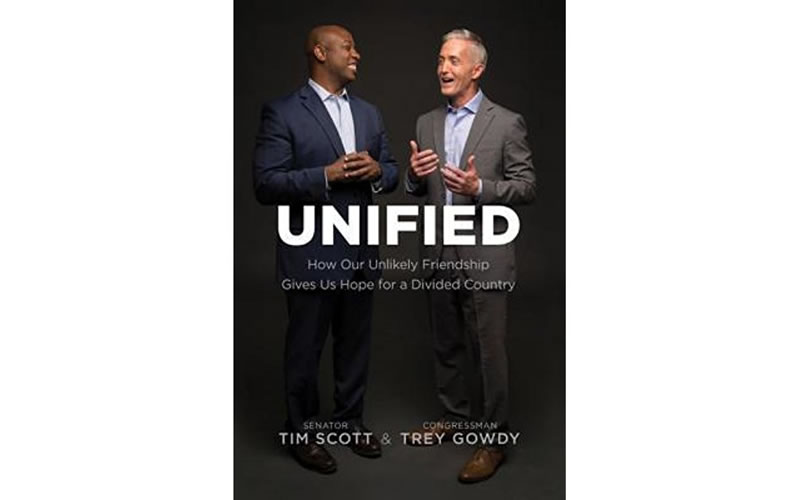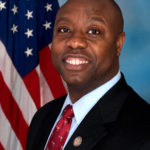By Andy Brack, editor and publisher | In 1975, the rock group War released a popular song titled “Why can’t we be friends.” It wasn’t complicated. The title was repeated a lot between various couplets, including this one: “The color of your skin don’t matter to me; As long as we can live in harmony.”
 Forty-three years later, two South Carolina Republican members of Congress released a book on friendship that for all intents and purposes reiterates a similar theme.
Forty-three years later, two South Carolina Republican members of Congress released a book on friendship that for all intents and purposes reiterates a similar theme.
“If we want to build friendships with people across lines of division, we must focus on what we have in common and not become distracted by what separates us,” U.S. Sen. Tim Scott writes in the new book with Upstate Congressman Trey Gowdy. This theme of building toward harmony fills the book from a leading publisher of works aligned with biblical principles.
While the book, titled “Unified,” is filled with practical advice on how to grow and deepen friendships, the subtitle — “How Our Unlikely Friendship Gives Us Hope for a Divided Country”– rubs the wrong way.
The inside cover elaborates: “Decades ago, no one would have predicted their paths would one day be intertwined. But they became good friends and an inspiration to others.”
But is this friendship really “unlikely” in 2018? Scott and Gowdy are from South Carolina. They’re about the same age. They both were elected to the U.S. House in the same year. They self-identify as conservative Republicans. They don’t drink alcohol or “party.” They’ve got a deep faith.
What really would be unlikely is if these two guys were NOT friends.
Perhaps the subtitle is a publisher’s race-infused promotion so the authors can get on television, sell books and share their narrative.
But is there something deeper going on at a more strategic level, particularly since the book was released the same week the nation remembered the assassination of Dr. Martin Luther King Jr.? Perhaps the book is a way to spin an alternative narrative as Americans reflect on King’s legacy. Perhaps during the country’s malaise of division it is a way to illustrate that Republicans, the vast majority of whom are white, aren’t all that bad. Is the book an elegant attempt to lure black voters from the Democratic Party?
If King were alive today, he likely wouldn’t be surprised that Scott and Gowdy were friends. Remember King’s famous quote from the “I Have a Dream” speech made in 1963, a year before Gowdy was born and two years before Scott’s birth:
“I have a dream that my four little children will one day live in a nation where they will not be judged by the color of their skin, but by the content of their character.”
The publishers have done a disservice to Scott and Gowdy by using the word “unlikely” in the subtitle because their friendship is not born of race. It’s born of shared values and experiences.
King would celebrate this friendship because it was exactly the kind of relationship he envisioned more than 50 years ago for a united American family.
But there’s a difference between King’s vision and that of Scott and Gowdy. King believed that government can help the downtrodden be uplifted and become part of the American dream. He believed working through government can lift up people by promoting racial and economic justice.
Scott and Gowdy have a narrower political vision — limited government, more individual rights and less involvement of Washington in people’s daily lives. They encourage people to develop deeper friendships with others they don’t know by focusing on what they have in common and moving toward more difficult subjects. They offer a lot of good advice.
But the book by the South Carolinians is a model of individually-based empathy — developing one-on-one friendships as a way for the nation to heal. King’s contrasting vision focused on collective empathy — a movement — for change for people who had been trampled for generations.
The book by Scott and Gowdy calls for quenching the nation’s thirst for unity by “cleaning the slate” through faith, forgiveness, reconciliation, love and more.
Unfortunately, the book isn’t as instructive outside of Christian individualism on how the nation can heal broadly.
- Have a comment? Send to: editor@charlestoncurrents.com






 We Can Do Better, South Carolina!
We Can Do Better, South Carolina!
























